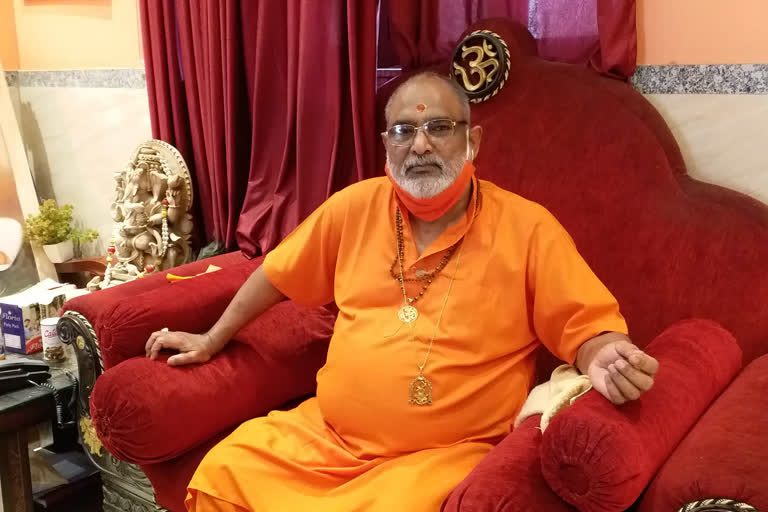New Delhi: Ahead of the Bhoomi-poojan of Ram Temple in Ayodhya on August 5, preparations are underway for the timely arrangement of all required materials for the construction of the Temple.
A silver brick from Gaya Dham and sand from Phalgu river will be used in laying the foundation of the Ram temple along with sand from 11 holy places, which includes temples and gurudwaras, of the national capital.
Sand, holy water from 11 holy places in Delhi to contribute to Ram temple construction For this, sand has already been sent to Ayodhya from religious places including the famous Kalkaji temple.
Speaking to ETV Bharat, Surendranath Avdhoot, the Mahant of Kalkaji Temple, said for the construction of any temple, sand, holy water from rivers, temples are taken from across the country.
Read:PM Modi to lay foundation stone of Ram temple on Aug 5
The holy places include Kalkaji temple, Gurudwara Sis Ganj Sahib, Gauri Shankar temple, Digambar Jain Lal Temple, Hanuman Temple, Navagraha temples, Kali Mata temple and Lord Valmiki temple.
Bhoomi poojan will be done at Garbh Griha to begin temple construction. This is the formal beginning of temple construction for which invites have been sent out.
Read:Silver brick from Gaya Dham, sand from Phalgu river to contribute to Ram Temple construction
While the temple construction ceremony was supposed to be celebrated with many Union Ministers, Chief Ministers and other important dignitaries in attendance, the list of attendees after COVID-19 spread is likely to have only Prime Minister Modi, Bhagwat, UP Chief Minister, few Ministers and MPs from the region, stated the source.
The construction of a grand Ram temple at the Janmabhoomi of Lord Ram has been defining issue for the Bharatiya Janata Party as it has been on the manifesto of the party for over two decades. The Ram Janmabhoomi Trust was formed by the Central Government after the Supreme Court of India directive regarding it on November 9 last year.
